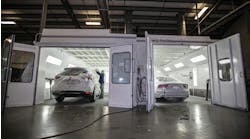I have never forgotten a seminar I attended several years ago. The presenter drew a circle on a flipchart, and drew a small pie sliver in the circle to represent the knowledge each of us possess. He then added another larger pie piece next to the small sliver to represent what we know we don't know.
This included asking if any one knew how to fly a jet, build a nuclear reactor or design memory chips in electronic components. This piece was much larger than the original sliver and everyone agreed it should be larger. However, those two pieces only took about one-third of the total pie.
"Notice the rest of the pie is much larger than what we know and what we know we don't know," the presenter said. "The rest of the pie represents what we don't even know we don't know."
What a perfect analogy to our industry.
We often have great confidence about what we do know, but very little recognition of what we don't know, and no awareness at all of what we don't know we don't know.
I read recently that the Database Enhanced Gateway (DEG) announced its 4,000th inquiry. This is a great achievement that directly benefits our industry. The DEG has allowed us to identify and correct information in databases more than 4,000 times. Many of these corrections have resulted in repairers being paid more fairly for their work. The estimating system information is provided to us by three entities, and is a key component we must rely on daily for the sustainability and growth of our businesses.
However, if each shop would submit one inquiry per year, in four years we would have exceeded 100,000 inquiries, and the 4,000 milestone wouldn't seem so great. Why don't we have more inquiries? Do you believe the database information is so accurate that 4,000 inquiries have rooted out all the situations where the accuracy is suspect? Or are there too many shops in this industry that don't have a clue, and don't even know they don't know?
I got a call recently from a friend who participates often with the DEG, and he just had an operation updated for a fender bracket on a 2008 Kia Rio. The bracket does not come with the fender, so a technician must either R&I the welded bracket from the original fender, or prepare a new one for welding, and weld it onto the new replacement fender. Why has something so obvious not been reported sooner? Certainly other repairers encountered this issue during their repairs.
Has our industry gotten so busy doing direct repair program administrative paperwork that our estimators aren't asking the right questions and being advocates for the benefit of the business and technicians they work for? How many more operations need a closer look to become more accurate? How does one know what to ask, if they don't even know what they don't know?
Since 2006 the vehicle design and repair requirements have changed so dramatically (this trend is not slowing down) that "not knowing what you don't know" on any vehicle that shows up at your door, is not an option. It can lead to unsafe repairs. So what's the solution?
Programs from companies such as ALLDATA, CCC Information Services, Mitchell and Audatex, as well as original equipment manufacturers' websites are available to look up key repair information for the vehicle before and during the writing of the estimate or repair plan. There is no excuse not to do this.
These same systems also provide detailed step-by-step procedures for technicians to follow so they don't waste time and money trying to figure it all out on their own, as far too many repairers have tried to do for decades. There is no excuse to continue this insane approach to collision repair. But through it all, we still resist, and act as if not knowing is OK with the customer, and with the future of our business.
I am sorry, but it is not OK. Ignorance is not bliss in our industry or in any other business. It's time to become much more proactive rather than reactive for the sake of our industry and business.




